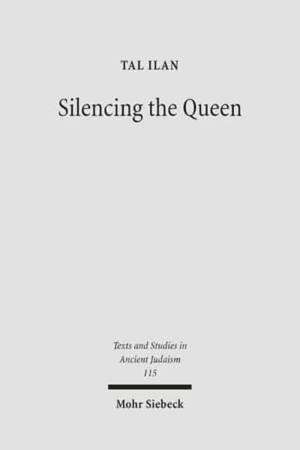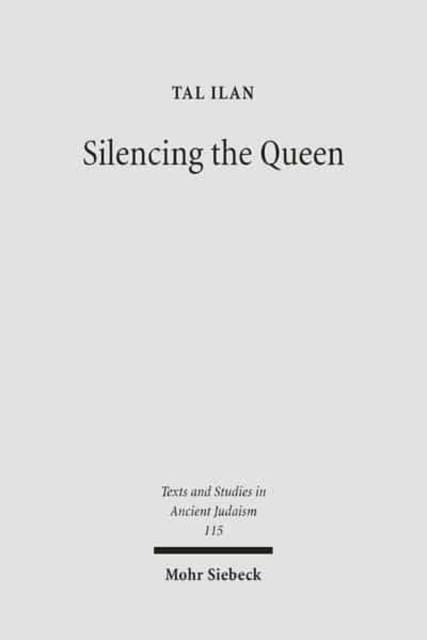
Door een staking bij bpost kan je online bestelling op dit moment iets langer onderweg zijn dan voorzien. Dringend iets nodig? Onze winkels ontvangen jou met open armen!
- Afhalen na 1 uur in een winkel met voorraad
- Gratis thuislevering in België vanaf € 30
- Ruim aanbod met 7 miljoen producten
Door een staking bij bpost kan je online bestelling op dit moment iets langer onderweg zijn dan voorzien. Dringend iets nodig? Onze winkels ontvangen jou met open armen!
- Afhalen na 1 uur in een winkel met voorraad
- Gratis thuislevering in België vanaf € 30
- Ruim aanbod met 7 miljoen producten
Zoeken
Silencing the Queen
The Literary Histories of Shelamzion and Other Jewish Women
Tal Ilan
Hardcover | Engels | Texte und Studien zum Antiken Judentum / Texts and Studies in Ancient Judaism TSAJ | nr. 115
€ 140,95
+ 281 punten
Omschrijving
Tal Ilan explores the way historical documents from antiquity are reworked and edited in a long process that ends in silencing the women originally mentioned in them. Many methods are used to produce this end result: elimination of women or their words, denigration of the women and their role or unification of several significant women into one. These methods and others are illuminated in this book, as it uses the example of the Jewish queen Shelamzion Alexandra (76-67 BCE) for its starting point. Queen Shelamzion was the only legitimate Jewish queen in history. Yet all the documents in which she is mentioned (Josephus, Qumran scrolls, rabbinic literature etc.) have been reworked so as to minimize her significance and distort the picture we may receive of her. Tal Ilan follows the ways this was done and in doing so she encounters similar patterns in which other Jewish women in antiquity were silenced, censored and edited out.
Specificaties
Betrokkenen
- Auteur(s):
- Uitgeverij:
Inhoud
- Aantal bladzijden:
- 315
- Taal:
- Engels
- Reeks:
- Reeksnummer:
- nr. 115
Eigenschappen
- Productcode (EAN):
- 9783161488795
- Verschijningsdatum:
- 31/12/2006
- Uitvoering:
- Hardcover
- Formaat:
- Genaaid
- Afmetingen:
- 153 mm x 229 mm
- Gewicht:
- 624 g

Alleen bij Standaard Boekhandel
+ 281 punten op je klantenkaart van Standaard Boekhandel
Beoordelingen
We publiceren alleen reviews die voldoen aan de voorwaarden voor reviews. Bekijk onze voorwaarden voor reviews.











